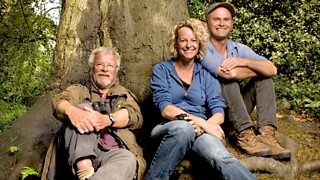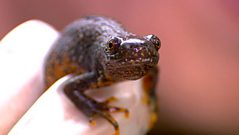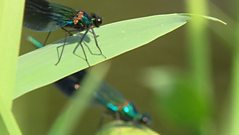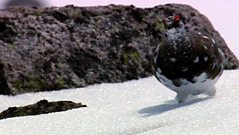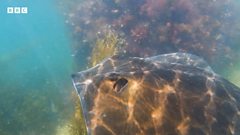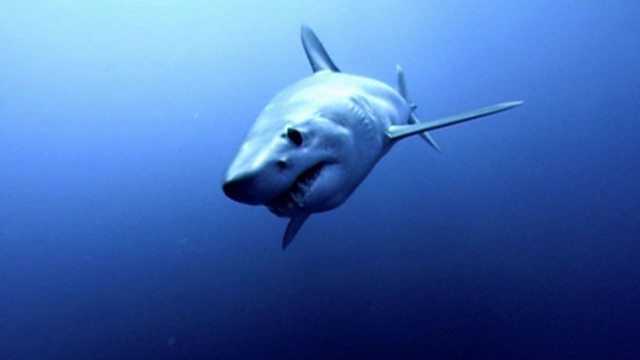
Shark search
Clues to the health of British sharks lie on our beaches.
Mermaids purses that are washed up on the beaches of Britain, are even more extraodinary than the legend they are named after. These are actually the egg cases of one of the most charismatic fish in our seas, the shark. Britain plays host to 30 different species of shark in its waters, but most of these are found in very deep waters and you are unlikely to encounter them. The ones you are likely to see are the cat sharks, less than a metre long living in the shallows and rock pools of the coast. Confusingly, they are commonly known as dogfish. The biggest shark in our waters is a summer visitor - the huge basking shark - and can reach over 10 metres long. They are harmless sharks, feeding only on plankton. We even have the fastest shark in the world, the Mako shark, which can swim at over 30 miles an hour. Most of the bigger sharks give birth to live young, but some of the smaller species lay egg cases that they attach to a rock or a piece of kelp. The egg has a large yolk which nourishes the developing embryo and after six to nine months the pup hatches and must fend for itself. Once discarded, the mermaid's purses often end up on our beaches, providing important clues as to how our local sharks are faring. Ali Hood from the Shark Trust is trying to encourage people to help in their conservation, by joining up to the great egg case hunt. Anyone can find out which species the egg case belongs to and can tell the Trust where they found it. Ali has a thornback ray egg case which has sharp thorns at the base. She explains that rays are part of the shark family as well. The egg case from the catshark has curly tendrils at the bottom. It's incredible to think that just by finding the remnants of these egg cases around the coast, we could be helping our sharks and advancing knowledge about them.
Duration:
This clip is from
Featured in...
![]()
Summer, seaside and sunshine
An exploration of the wealth of wildlife that lives in and around the British seaside.
![]()
主播大秀 Nature
Be captivated, informed and inspired by the world's wildlife.
More clips from Episode 10
-
![]()
Highland dawn
Duration: 02:33
-
![]()
Ice age home
Duration: 02:31
-
![]()
Fairy flies
Duration: 00:49
-
![]()
Blending in
Duration: 01:18
More clips from Springwatch
-
![]()
Hannah Stitfall discovers RSPB Arne's reptiles
Duration: 02:53
-
![]()
Hannah Stitfall goes behind the scenes on Springwatch
Duration: 01:18
-
![]()
Enjoy the calmness of a kelp forest
Duration: 01:11
